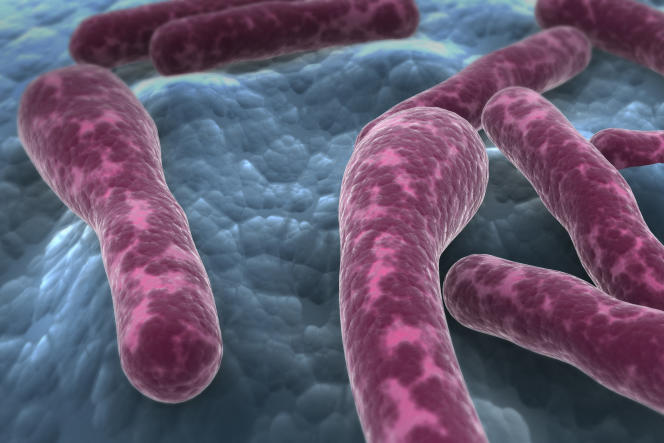In Bordeaux, Barcelona and Ile-de-France, at least twelve cases of botulism have been detected in recent days. A 32-year-old person died on Tuesday, September 12, in the Paris region, as a result of the disease. In the city of Gironde, eight people were placed in intensive care or in a continuous monitoring unit. In the Catalan capital, the patient was taken care of by medical services.
All infected people ate homemade canned sardines served in a Bordeaux restaurant, the Tchin Tchin Wine Bar, which was not authorized to sell them. Its fish is suspected of being the cause of the disease.
“There is little doubt about the causal links between canned foods and the appearance of symptoms”according to Thierry Touzet, deputy director of the departmental population protection directorate of Gironde. The world answers four questions about this rare but potentially fatal disease.
What is botulism?
Botulism is a rare neurological condition. According to data from the national public health agency, Santé publique France (SPF), dating from 2017, the national incidence rate is low, amounting to 0.08 per million inhabitants. The disease can be serious when not treated in time, and in 5% to 10% of cases it is fatal, according to the World Health Organization (WHO).
The condition is caused by a toxin, which acts on the nervous system, produced by the bacteria Clostridium botulinum, explain SPF. Seven types of botulism are listed, classified by letter from A to G. Up to five of them can affect the human species: A, B, E, F more rarely, according to the Pasteur Institute, and C , also, according to SPF.
Three forms of botulism are known. It can be caused by colonization of the intestine in the presence of bacterial germs, which is particularly the case with infant botulism, or by contamination of a wound, particularly during intravenous drug consumption.
The most common form of illness remains food poisoning by ingestion. “toxin in preserved foods that have not undergone an extensive sterilization process”, explains the Pasteur Institute. The foodstuffs often implicated are cured meats, cold meats or even preserved foods of family, artisanal or mass distribution origin. The disease is not contagious.
How does the disease manifest?
The time that elapses between the introduction of the bacteria into the body and the first symptoms can range from a few hours to a few days, depending on the method of contamination. SPF estimates it at a minimum of two hours and a maximum of eight days.
Online courses, evening classes, workshops: develop your skills
Discover
The declaration of affection is manifested by “eye damage (failure to accommodate, blurred vision), dryness of the mouth accompanied by a deficiency in swallowing or even speech, then paresis (decrease in muscle strength) or paralysis of the muscles”, specifies‘Pastor Institute. The disease can also cause digestive problems: diarrhea, abdominal pain, nausea or even vomiting.
In the most serious cases, Benjamin Clouzeau, doctor in medical intensive care at the Bordeaux university hospital center, explained during a press conference on Wednesday morning that the condition can go so far as to cause respiratory paralysis. The severity of symptoms varies and may depend on the amount of toxin ingested.
What are the risks ?
One of the risks is respiratory paralysis, requiring intensive care, which puts life in danger, “types A and E being responsible for the most serious forms”, writes the national public health agency. The disease is fatal in 5% to 10% of cases, according to the Pasteur Institute, specifying that “the vast majority of patients treated without delay recover without after-effects, but the duration of treatment and convalescence can last several months.”
The Dr Clouzeau adds that “the more time we spend in intensive care”the longer the recovery time can be extended, as well as that of ” re-education “.
How to treat and prevent the condition?
There is an antidote that can be given to patients who present early, before paralysis of the respiratory muscles. The antitoxin consists of reducing the intensity of symptoms. The Pasteur Institute adds that“There is also an anti-botulinum vaccine, but it is reserved for exposed people, working in laboratories for example.”
The prevention of botulism by food poisoning is based on hygiene rules to be respected when preparing canned foods. In the event of a manufacturing defect, signs such as a bad smell when opening a can can alert you.
